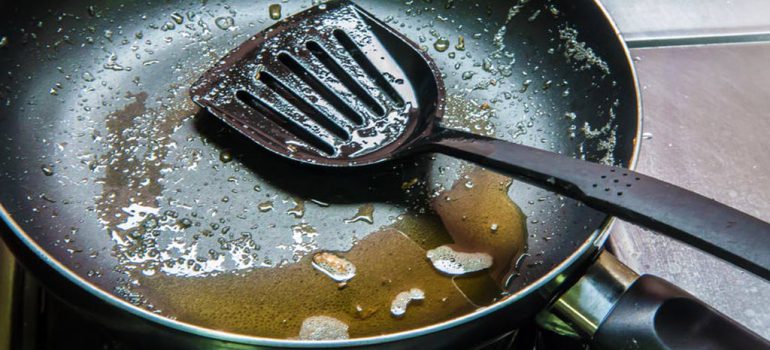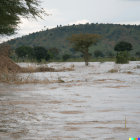How the cooking oil you pour down your drain is messing up your drainage.
Practically every meal you prepare at home will use cooling oil, grease or cooking fat. For such a coming ingredient it’s a mystery how we aren’t more prepared and knowledgeable as to how to get rid of it once we’re done cooking.
Don’t pour fats, oil or grease down the drain.
Cooking fat and grease might go down the drain as liquids but as soon as they cool down, they turn to solids. As other food particles go down the drainage system they get trapped. They accumulate to the point where it restricts flow down the drain or even complete blockage of pipes.
Cooking oil floats on water forming a film that traps solids moving down the drain, causing the same effect.

A common solution is to pour hot water down the drain, but this is only a temporary solution. It also only moves the issue down the drainage system. Further down the system the oils and fats cool and solidify causing problems for the local wastewater treatment systems or your own system.
Pouring dish soap is the same story. It only temporarily breaks down oils and fats. Further down the drain it collects bringing the same problems.
How to get rid of your used cooking oil.
First of all, make sure the oil from your sufurias, pans etc. does not go down the drain as they are in the sink. Let the oil cool after cooking and wipe down your dishes before washing them.
A strainer can help prevent oil and food particles from going down the drain.
Oils, fats and grease should be placed in a non-recyclable container, e.g. a milk carton, then thrown out with the trash.
If it is in small amounts, once the oil cools, it can be thrown in the trash without placing in a separate container.




